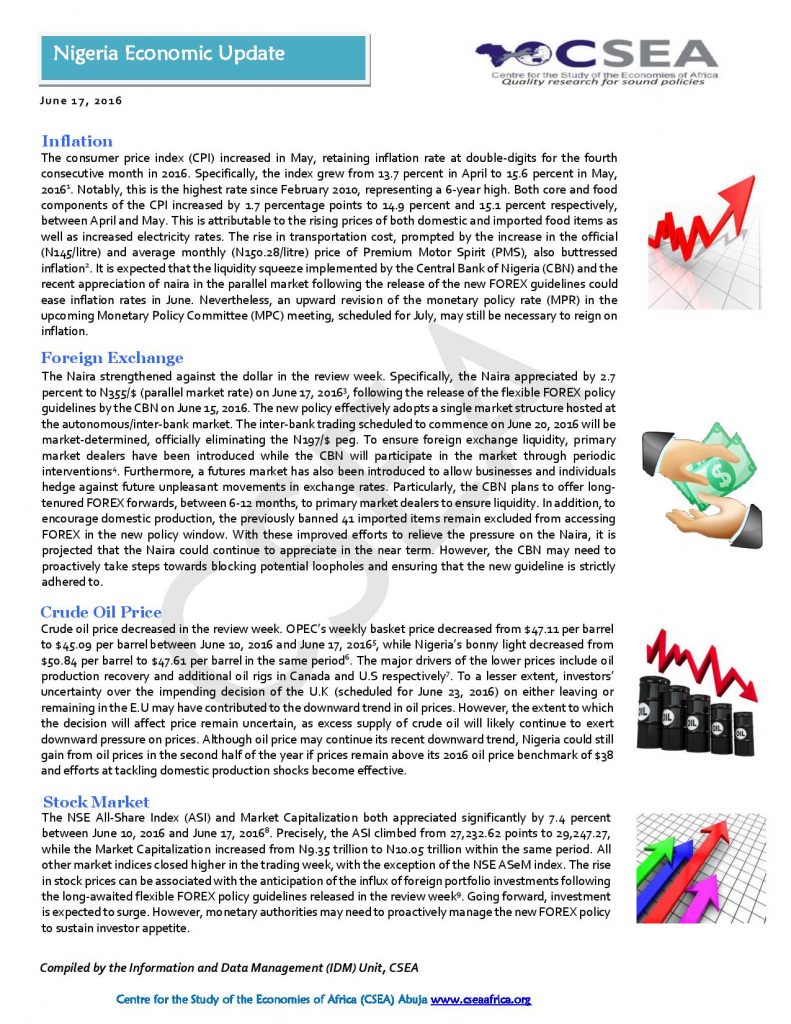Macroeconomic Report & Economic Updates

June 24, 2016
Nigeria Economic Update (Issue 27)
The
Naira strengthened against the dollar in the review week. Specifically, the
Naira appreciated by 2.7 percent to N355/$ (parallel market rate) on June 17, 2016,
following the release of the flexible FOREX policy guidelines by the CBN on
June 15, 2016. The new policy effectively adopts a single market structure
hosted at the autonomous/inter-bank market. The inter-bank trading scheduled to
commence on June 20, 2016 will be market-determined, officially eliminating the
N197/$ peg. To ensure foreign exchange liquidity, primary market dealers have
been introduced while the CBN will participate in the market through periodic interventions.
Related
Nigeria Economic Update (Issue 49)
Nigerias
Petroleum Products Imports statistics show a gradual reduction in the volume
and value of petroleum imports (PMS, AGO, HHK) between May and September 2016. Specifically,
volume of imports declined by 34.1 percent for PMS, 37.6 percent for AGO, and
60.3 percent for HHK in the period.The significant decline in
imports in the reporting periods may be as a result of persistent forex
scarcity issues faced by importers. On account of stagnation in
domestic production of refined petroleum products, continuous
decline in oil imports may create a demand gap with upward pressure on gasoline
prices in the economy.
Nigeria Economic Update (Issue 4)
Recently released power sector report by the
National Bureau of Statistics records a total average energy generation of 2,548GWH
by 25 power stations, from October 2016 to December 2016. Daily
Energy generation, attained the 2016Q4 highest level of 3,859.6MW in October
2016, and a lowest level of 2522MW in the same month. On the average, current
daily energy generated which is below 3,000MW, prompts system malfunctions.
Thus, the irregular power generation and supply experienced in recent times is
attributable to shortage of gas owing to non-functional major pipelines, in
addition to the inability of GENCOs to make payments for the available gas
supply. Given the recent challenges to power supply, efforts should
be geared towards the diversification of electricity generation. Government
should consider investment in renewable as well as coal energy to complement
gas power supply.
